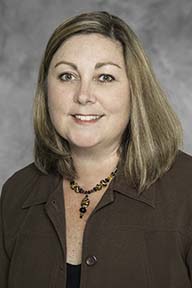 Prof. Guo Yuming – 呙于明 教授
Prof. Guo Yuming – 呙于明 教授
Prof. Guo Yuming is a poultry nutritionist and Changjiang Scholar Distinguished Professor at China Agricultural University, and his scientific researches focus on nutrition, immunity and health, nutritional evaluation of feedstuffs for chickens, and nutritional requirements of chickens. Yuming is the dean of the College of Animal Science & Technology of China Agricultural University, the deputy director of the State Key Laboratory of Animal Nutrition, and he is also the president of the Animal Nutrition Society of the Chinese Association of Animal Science and Veterinary Medicine of China. He, as first or corresponding author, has published over 110 papers in the international peer-reviewed SCI journals in the field of nutrition and chicken immunity,GI tract health, metabolic disorders and poultry product quality. He now also serves as the deputy director of National Feed Evaluation Committee of China, and is a member of the Technical Committee of China Feed Industry Standards.
 Prof. Richard Ducatelle
Prof. Richard Ducatelle
Prof. Richard Ducatelle graduated from the University of Ghent in Belgium in 1978. He then completed a Ph.D. in veterinary pathology in 1983. He was a scientific advisor to the Belgium government from 1984 to 1989 and has been a Professor in Veterinary Pathology at the University of Ghent since 1989. He has been President of WVPA Belgian branch since 1991 and also a Past-President of the ESVP. He has been the author or co-author of more than 550 scientific publications listed in the Web of Science and more than 300 abstracts in proceedings of international congresses. He has spoken at more than 60 national and international congresses. Professor Ducatelle’s research is mainly on intestinal health and on interactions on zoonotic agents with the animal host reservoir, with a focus on poultry. He has mentored more than 20 PhD theses in this field of research.

Prof. Robert Moore
Rob graduated from Monash University, Melbourne, Australia, in 1978 and completed his PhD there in 1982. After post-doctoral fellowships in Edinburgh and London, he returned to Australia to work in R&D at Coopers Animal Health for 8 years. He then moved to CSIRO, the Australian government research institute, to head a host-pathogen research group. In 2015 he moved to RMIT University (Melbourne, Australia) to establish the Host-Microbe Interactions Laboratory, a molecular microbiology group that studies bacterial pathogens of animals. Our goals are to understand pathogenesis and develop vaccines and other therapeutic approaches to disease control. The group also has a major interest in studying the role of gut microbiota in the health and productivity of poultry. Rob is also an Adjunct Professor at Monash University. He has published >100 peer reviewed papers and is an inventor on 10 patents.
 Prof. Damer Blake
Prof. Damer Blake
Following a PhD focused on bacterial genetics from the University of Aberdeen, Damer began working with Eimeria species parasites in 2001 at the Institute for Animal Health (IAH, UK). During his time at IAH he carried out fundamental and applied genetics-led research, contributing to the Eimeria genome sequencing consortium and developing reverse-genetics strategies for use with Eimeria. Damer joined the Royal Veterinary College in 2010, becoming Professor of Parasite Genetics in 2016. Current research strands include the genetics-led identification of new anticoccidial vaccine candidates, development of novel vaccine delivery strategies, understanding the genetic basis of host resistance to coccidiosis and interactions of Eimeria with bacterial microbiota of poultry.
 Prof. Jeroen Dewulf
Prof. Jeroen Dewulf
Jeroen Dewulf graduated in 1998 as a veterinarian. In 2002 he finished his PhD on the epidemiology and control of classical swine fever. In that same year he received a master of science degree in veterinary epidemiology from the University of Utrecht, the Netherlands (Cum Laude). He became diplomat in the European College of Veterinary Public Health in 2005. Currently he is full professor in Veterinary Epidemiology at the Faculty of Veterinary Medicine of the Ghent University. His main research interests are quantitative epidemiology and control of zoonosis with a specific emphasis on antimicrobial resistance and antimicrobial use in animal production as well as the prevention of epidemic and endemic diseases with a focus on the application of biosecurity measures. His research focus on prevention of endemic and epidemic diseases though biosecurity measures and animal health aspects that may influence public health such as antimicrobial use and resistance in animals as well as zoonotic infections. He is the head of the Veterinary Epidemiology Unit and is supervising over 10 PhD students who are doing research in the field of veterinary epidemiology. He is (co-)author of over 250 A1 publications in the field of veterinary epidemiology with a H-index of 31.
 Prof. Holly S. Sellers
Prof. Holly S. Sellers
Holly Sellers earned her Master’s and PhD degrees in Medical Microbiology from the College of Veterinary Medicine at the University of Georgia, Athens, Georgia, USA followed by a post-doctoral research position with the US Department of Agriculture at the Southeast Poultry Research Laboratory. She is currently a Professor at the Poultry Diagnostic and Research Center (PDRC) at the University of Georgia where she directs Virology Services, has an active research program on avian viral diseases and teaches veterinary, graduate and professional students. She works closely with the poultry industry to provide diagnostic services that contribute to solving field problems. Her research interests are focused on viral diseases of poultry, specifically enteric, respiratory and reoviruses.
 Prof. Rommel C. Sulabo
Prof. Rommel C. Sulabo
Dr. Rommel Sulabo is a professor of monogastric nutrition and Head of the Animal Nutrition Division at the Institute of Animal Science in the University of the Philippines Los Baños. He received his MS in 2003 on monogastric nutrition at South Dakota State University and his PhD in swine nutrition at Kansas State University, USA in 2009. He then worked as a research scientist with two globally respected animal nutrition research groups; the K-State Applied Swine Nutrition Team at Kansas State University and the Hans Stein Monogastric Nutrition Laboratory at University of Illinois at Urbana-Champaign. His research and extension program focuses on applied monogastric nutrition with special emphasis on feed ingredient evaluation in swine and poultry. He has collaborated extensively with stakeholders of the livestock and poultry industry to get producers access to the latest information and to adopt what works for their operation to improve their profitability. He has published over 150 technical publications, including over 25 peer-reviewed ISI journal articles and 50 popular articles. He is currently the major adviser of over 13 PhD and 27 MS students in monogastric nutrition. In 2014, he was awarded the National Academy of Science and Technology Outstanding Young Scientist, the Philippines’ premier recognition and advisory body on Science and Technology.
 Dr. Manoosak Wongphatcharachai
Dr. Manoosak Wongphatcharachai
Dr. Manoosak Wongphatcharachai is a Doctor in Veterinary Medicine and has a PhD in Molecular Microbiology, both received at the Chulalongkorn University in Bangkok, Thailand. He stayed for 4 years as a Post-Doctoral Associate in the BioTechnology Institute at the University of Minnesota in the US where he analysed microbial community structures using 16SrDNA sequencing and metagenomics technologies. Currently he is a scientist at the Feed Technology Office of Charoen Pokphand Group (CP), studying intestinal health, by developing models to evaluate gut health, and developing pipelines for next generation sequencing to study gut microbiota composition and gene expression.
 Greg Mathis
Greg Mathis
Greg Mathis graduated with a Bachelor of Science degree from North Georgia College. He then worked for the United States Department of Agriculture. He later enrolled at the University of Georgia and earned his Masters and Doctor of Philosophy degrees in the Poultry Science Department. His doctoral work centered on control of coccidiosis, specializing in epidemiology, anticoccidial drugs, and genetics. After receiving his Ph.D. he started Southern Poultry Research, Inc. a private contract poultry research company. Southern Poultry Research, Inc. has now been in business over 30 years serving the pharmaceutical and poultry industries working on nutritional, coccidiosis vaccination, Necrotic Enteritis, Salmonella, and replacements for antibiotic growth promoters. During that time he has written numerous manuscripts and trade articles. He has extensively made scientific presentations, lectures, and taught numerous poultry pathology courses both nationally and internationally. He was awarded the American Poultry Historical Society Award in 2012. He is also an international judge for retriever dog trials.





Comments are closed.